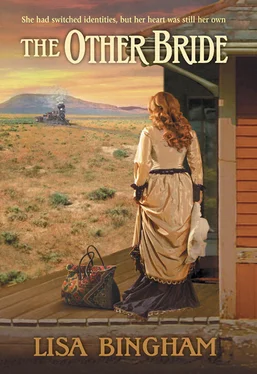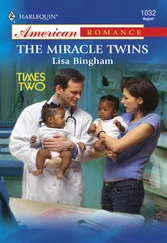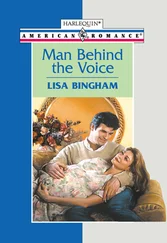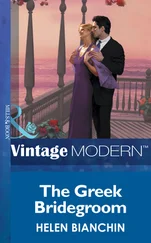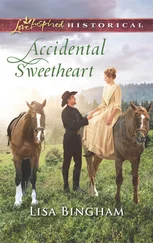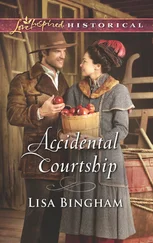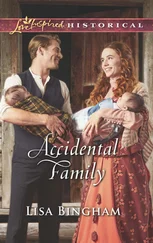Heavens, what a man!
Before she could gather her scattered wits, his gaze raked over her with insolent thoroughness.
“You’re very lovely, but I don’t recall asking for your business.”
Phoebe gasped at the man’s effrontery. Her hands balled into fists, but she strove to control her temper.
So this was the great Gabriel Cutter. The same man who had decided to deny the mail-order brides their rightful passage on his train.
Her anger seethed anew.
“It is I who has business with you, Mr. Cutter.”
He didn’t seem impressed by her statement. Instead, he began circling her, scrutinizing every inch of her frame in a way that reminded her of a hungry lion she’d once seen being fed at the London Zoo.
The Other Bride
Harlequin Historical #658
Praise for Lisa Bingham
“Lisa Bingham breathes life into your wildest fantasies!”
—Romantic Times
“Lisa Bingham captures perfectly the spirit of late nineteenth-century America.”
—Affaire de Coeur
“Her characters are delightful, full of dimension and individuality and make you laugh, cry and leave you sleepless while you try to read just one more page.”
—Affaire de Coeur
#655 BEAUTY AND THE BARON
Deborah Hale
#656 SCOUNDREL’S DAUGHTER
Margo Maguire
#657 WYOMING WIDOW
Elizabeth Lane
The Other Bride
Lisa Bingham
www.millsandboon.co.uk
Available from Harlequin Historicals and LISA BINGHAM
The Other Bride #658
Other works include:
Harlequin American Romance
Nanny Jake #602
The Butler & the Bachelorette #635
The Daddy Hunt #651
Dana and the Calendar Man #662
The Princess & the Frog #692
And Babies Make Ten #784
Man Behind the Voice #835
Twins Times Two! #887
Harlequin Intrigue
When Night Draws Near #540
Prologue
Chapter One
Chapter Two
Chapter Three
Chapter Four
Chapter Five
Chapter Six
Chapter Seven
Chapter Eight
Chapter Nine
Chapter Ten
Chapter Eleven
Chapter Twelve
Chapter Thirteen
Chapter Fourteen
Chapter Fifteen
Chapter Sixteen
Chapter Seventeen
Chapter Eighteen
Chapter Nineteen
Epilogue
Devon, England
April, 1870
“Louisa! Louisa, where are you?”
The call was distant, urgent, riding on the back of a gusting wind that threatened to obscure the query altogether.
From her hiding place beneath the willows at the edge of the graveyard, Louisa Haversham debated whether or not to respond. The storm would be here any moment. If she waited long enough, the rain would come and the student who had been sent to find her would balk at entering the cemetery, and return to school. Then she would be alone once again.
“Louisa! Mr. Goodfellow and Mrs. Pritchard are looking for you!”
Louisa grimaced. She didn’t really care if her absence angered Mr. Goodfellow, the owner of the school, or Mrs. Pritchard, the headmistress. They might scold or keep her from her meals, but they wouldn’t dare to exact a punishment harsher than that. Not when her father was their principal benefactor. In her years with the school, Louisa had been anything but a biddable student. She’d been an angry, hurt child when she’d first arrived, and her temper hadn’t improved much over the years.
“Lou-i-sa! Your father is here!”
Several seconds passed before the meaning of the words permeated her brain. Jumping to her feet, she scrambled in the direction of the school, racing pellmell through the sodden grass, until she arrived breathless and disheveled at the side door.
Mrs. Pritchard waited for her there, her body quivering in displeasure. “Into the chapel,” she snapped. “Your father is waiting.”
Louisa hurried to comply, her knees growing weak with anticipation and anxiety. Her father was a rare visitor to Goodfellow’s and his sudden appearance didn’t bode well. The truth of the matter remained that Oscar Haversham despised Louisa and had despised her from birth. She hadn’t been a boy and had therefore proved useless to him.
But the last laugh is on you, Father, a tiny voice within her whispered. Her father, who had married five times in an effort to produce a son, would soon die “without masculine issue.” The ravaging effects of consumption would claim him soon enough.
The irony wasn’t lost on Louisa, nor could she ignore the tragedy of the situation. She was the only child of one of the wealthiest men in England, yet she’d lived a life of virtual poverty within the walls of Goodfellow’s School for Girls. Only at Christmas-time was she permitted to return home—a fact that had been more of a burden than a delight. For seven days, she was dressed in clothes and jewelry chosen by her father to impress whatever business associates had been invited to Haversham Hall. She was expected to keep to herself, refrain from speaking, and appear suitably grateful for the scraps of attention he threw her way. Then, as soon as the New Year dawned, she was hustled back to Goodfellow’s posthaste.
So why was her father here now?
Hearing the distant sound of voices, Louisa froze. Could she dare to hope that she was about to leave Goodfellow’s School for Girls and return home for good? Or was her father on his deathbed? Was he frantic about the inevitable disbursement of his title and the bulk of his business empire passing to a distant male cousin rather than a son?
Louisa wove her fingers tightly together to still a burst of trembling. Her panic grew so intense it nearly choked her. Damn her father for his meddling, for his hard-heartedness. But most of all, damn him for his inability to love her for something she could not change—being a female. If she ever managed to get free of his clutches, she would never allow another human being to have such control over her.
Especially not a man.
Louisa was but a few feet away from the chapel when the door suddenly swung wide, revealing the sour face of Mr. Goodfellow.
“In here, child,” he said curtly, clearly holding his tongue to avoid criticizing her in the presence of her father.
Moving on quaking limbs, Louisa crossed the threshold. In an instant, she took in the tall figure of the local magistrate, her dour cousin Rodney, her father in his rolling chair, and an unknown woman in black, her face obscured by a mourning veil.
Louisa’s heart thumped in her breast.
What was happening? Why had her father come to Goodfellow’s—and why had he brought Cousin Rodney and another woman with him?
As if sensing her thoughts, her father, the eleventh Marquis of Dobbenshire, spoke. “You’re to be married by proxy,” he rasped, his voice hoarse and quavering like a man of eighty rather than his mere fifty years. “Your husband-to-be, Charles Winslow III, is a business associate of mine in Boston. He was unable to make the crossing—” Haversham paused, struggling for breath “—so he sent word…that you were to be married anyway, with Rodney standing in as the groom.” Again he paused, and the pallor of his skin alarmed even Louisa. “At the end of the week, you will board a ship for America. Once there…you’ll have a proper church wedding.”
Married?
By proxy?
Ice began to seep into her muscles. Her mind worked frantically, trying to grasp the meaning of her father’s pronouncement. But with each inescapable tick of the clock, she was able to grasp only one fact.
Her father was a brilliant man. The last time she had seen him, he’d railed at the fact that his wealth, power and title were to be passed on to an “ungrateful cousin” rather than his own flesh and blood.
Читать дальше
